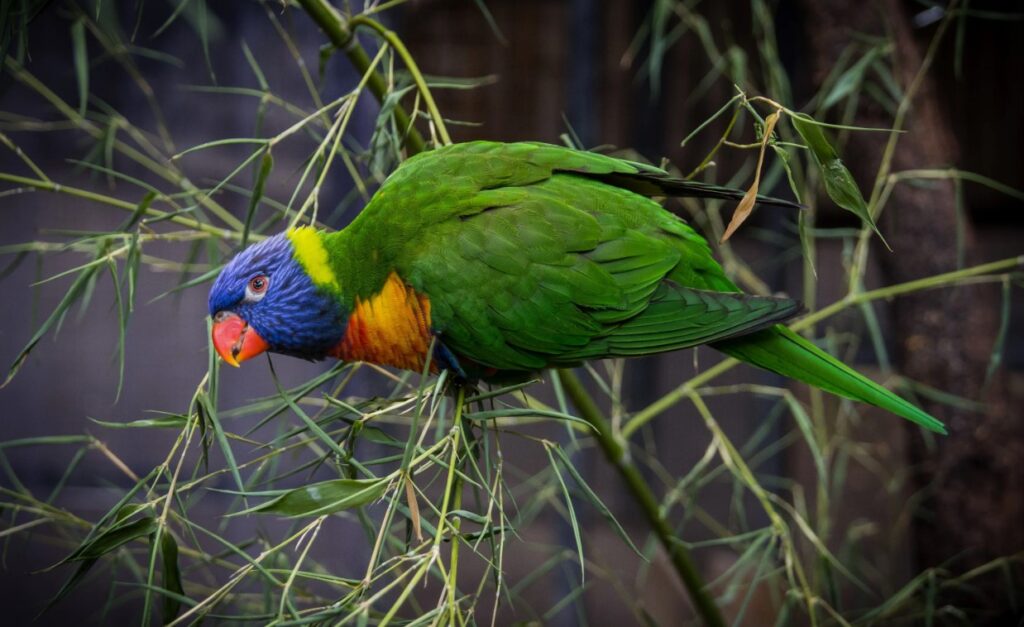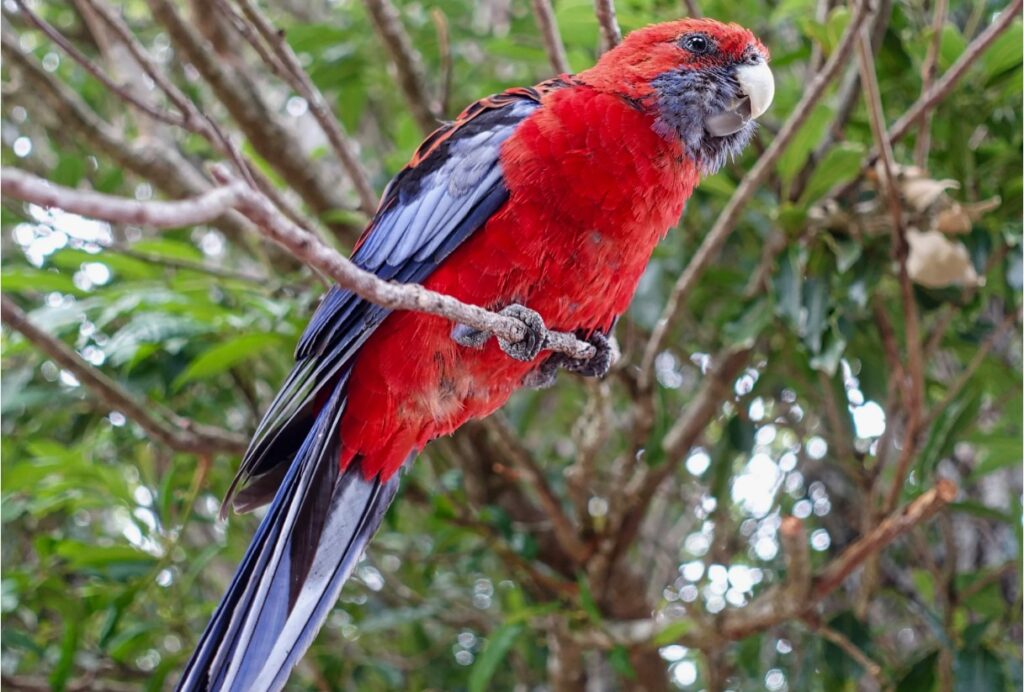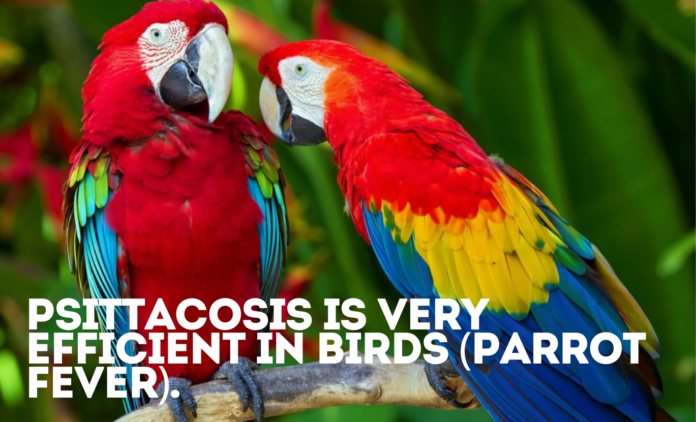Also referred to by the name of the parrot flu or avian-chlamydiosis the psittacosis is a bird-borne disease that a lot of bird owners face when taking care of their pet birds. Psittacosi is a serious and may even be life-threatening it can cause symptoms such as the feeling of being tired, loss of appetite, weight loss as well as other. This zoonotic infection can be found in different bird species, including the most popular species of pets, such as macaws parakeets, cockatiels Amazon Parrots and cockatoos the lories African grey lovebirds, parrots as well as pigeons and pets like ducks.
Psittacosis can be infectious and is spread across the air. In addition, it could even affect people. 1 Pet owners must be aware of the warning signs and the methods to prevent them from being infected with psittacosi in order to benefit lower the risk of this disease spreading to their home.
What Is Psittacosis?
Psittacosis is a disease that can be transmitted caused by the bacteria Chlamydophila the psittaci that affects hundreds of species of bird as well as certain animals. It can occur due to Chlamydophila Avium, Chlamydophila gallinaceaand different bacteria. Psittacosi spreads between birds, however, it is also transmissible to mammal species (including humans) by infected birds. C. Psittaci is the bacterium which is most often found in psittacines of pets, such as parrots, and is frequently diagnosed.

Symptoms of Psittacosis in Birds
Psittacosis in birds can cause various symptoms, however, it is also possible for it to go undetected and remain dormant with no any symptoms. Birds that are severely infected due to exposure to the bacteria (which encounter an infected animal or object) are symptomatic within a period of three days. However, carriers of the bacterium could develop symptoms at any time. The birds that have been infected are not symptomatic until they get stressed. This causes the onset of symptoms. Bird owners might notice these signs:
☑️☑️ Symptoms
⏩Puffy and eyes that are swollen
⏩ Lethargy
⏩ Weight loss and appetite loss reduction
⏩ Feathers stuffed with feathers
⏩ Nasal discharge
⏩ Abnormal droppings
Puffy and Swollen Eyes
Also known as conjunctivitis eyes that are puffy and swollen is an occurrence of psittacosis in birds. The cause is inflammation of the blood vessels that surround the eye.
Lethargy
Lethargy is a signification of a variety of ailments that affect humans, birds as well as other species. The various symptoms of illness your bird experiences during the course of a psittacosi-related illness can result in its energy levels to drop which can limit normal activities such as singing, playing, or flying.
Loss of Appetite and Weight Loss
If you observe that your bird isn’t eating enough food, then weight loss could occur. Discuss with the exotic vet about how to help your pet keep a healthy weight and get the necessary nutrients when it’s feeling unwell.
Fluffed Feathers
A bird could be able to fluff its feathers to remain warm. Psittacosi can cause animals to be cold, shivering and feel chilled. Therefore, the feathers that are fluffed could be an indication of the illness (although birds can also fluff their feathers to show emotions such as anxiety, fear, joy or joy).
Nasal Discharge
A discharge from your nasal cavity of the bird is common in cases of Psittacosis. It can occur in conjunction with respiratory issues such as respiratory problems that cause labored breathing.
Abnormal Droppings

The bird’s droppings may be discolored, runny or appear abnormal due to a variety of reasons. But, when combined with other signs of psittacosis it could indicate that the liver of the bird is infected with the bacteria. People with the disease may notice discoloration in the green or yellow types.
Causes of Psittacosis
Psittacosis is an extremely infectious disease. Since it can spread through breathing it is common for psittacosis infect multiple members of one household (including humans, birds as well as different animals). The causes are as follows:
Contact with birds infected: A fast way for birds to contract psittacosi involves contact with infected birds and breathing in the same region and then propagating the disease.
Contaminated objects: Psittacosi can spread when birds come into contact with food items or water bowls, feathers dropped from the air and other objects which have been infected by a bird (even when the other bird isn’t present).
Airborne disease:Being in the same space that has poor ventilation as a bird infected could cause the bird you love to develop this disease.
This can also be a means for psittacosi be transmitted to people who care for the birds infected.
The most frequently affected species of pets birds is the family of psittacine (often called parrots). They include macaws and Budgerigars (parakeets) as well as cockatiels. Amazon Parrots and cockatoos the lorikeets African gray parrots and lovebirds and conures. Pet birds like pigeons are also commonly affected by psittacosis as are the pets of water ducks. The countless different bird species are at risk of this illness as are wild birds too.
Diagnosing Psittacosis in Birds
Psittacosis signs can appear like a variety of other illnesses in pets, specific tests are required to confirm that there’s C. psittaci. In the majority of instances the blood test is best because it can inform your vet if the bird is infected, even without signs. Histology (looking at tissues through a microscope) is the method of detecting antigens and nucleic acids and serological tests and culture tests may be suggested by an veterinarian for avian patients to identify your bird suffering from psittacosi. Sometimes, more tests than just one is required.
The bacterium can be found in various bodily tissues, such as the liver, feces and kidneys, lungs, the spleen, excreta from the eyes as well as the choana and Cloaca, as well as the tissue covering the heart, known as the pericardium. Birds with symptoms of psittacosi are more easy to recognize than birds who do not show indications of the illness. In some cases, numerous specimens of feces must be examined to detect the bacterium however, fecal tests aren’t efficient in determining the cause unless the bird is shed it.
Treatment
There is a cure for the condition known as psittacosis. Since birds aren’t able to safely use the same types of antibiotics like other species of animals, the veterinarian treating your bird is likely to prescribe doxycycline an antibiotic from the class of drugs known as tetracycline for 45 days, to treat the disease at the various stages. When your animal doesn’t have C. Psittaci, a different antibiotic belonging to the sulfonamide class might be successful too however this class is not able to exert any influence on the most frequently diagnosed kind of bacterium that causes the condition known as psittacosi.
Prognosis for Birds With Psittacosis
Around 50 percent of birds be killed by psittacosi when left untreated, however antibiotics have been proven to be effective in tackling this. 2 If your bird exhibits any of the symptoms that are associated with this condition, make arrangements for an an avian veterinary examination whenever you can to commence treatment. It is recommended to have follow-up examinations to assure the infection is gone within 45 days of treatment.
How to Prevent Psittacosis
Similar to other avian illnesses, the same is desirable that bird-owners attempt to avoid infections with psittacosis prior to when they happen. A proper sanitary practice such as quarantine protocols, the separation of infected birds are vital:
Cleanliness During Handling
Certain disinfectants are able to kill the bacteria that cause psittacosi therefore cleanliness is essential to prevent this illness. If you go to a bird show or go to a pet store, be sure you clean your hands after handling birds, and prior to handling your own pet. Items that are sold at a pet shop or a bird event (such like food bowls, cages, and even toys) could be contaminated by fomites from infected birds. They must be cleaned before being delivered home for your pet.
Sanitation Involving Wild Birds
Wild birds carry psittacosis as well. The baby birds that escape of nests dead birds, dead birds and injured birds are often handled by humans and may carry the disease psittacosis. If you manage the wild bird (especially birds that migrate to seas) warrant that you clean your hands before handling your pet bird.
Quarantining New Birds
If you’re planning to adopt or buying a pet bird assure that you be sure to quarantine your bird prior to introduction to a different.
How to Prevent Psittacosis. main points for Disease Control and Prevention.
This allows you to observe them for any indications of Psittacosi. Make sure you practice the highest standards of hygiene during the quarantine period also wear disposable gloves as well as masks, especially if the person who brought the bird’s symptoms cannot grant the medical history of the bird.
Isolating Infected Birds
If you own several bird species and one of them is identified as having psittacosis symptoms, separate the bird from the rest immediately to reduce the chance of spreading the disease. Good ventilation, clean and safe environments and proper hand hygiene are crucial in stopping the spread of psittacosis within your home.
25 Best AppSumo Lifetime Deals Tool Bargains in September 2024
Is Psittacosis Contagious to Humans?
Psittacosis can be transmitted to people, and touching an animal that has been infected could lead to the development of the disease. The virus can be spread through breathing, so being near the bird can pose a threat. 1 Try to improve the airflow in the area in which your bird is kept through opening windows, and then turning on the fan. Always wear gloves and a mask when handling or feeding a sick bird. Clean up your house frequently.
Its symptoms that affect mammals as well as humans differ from those in birds. For humans, psittacosi usually results in respiratory illness including fever, chills, fatigue muscle discomfort, dry cough and many more. 1 In certain mammals like cows or pigs, the condition may cause miscarriage or reproductive issues in addition to eye problems as well as lameness, fever or nose discharge.
Psittacosi may be fatal for animals who are not treated for symptoms, however, the majority of them are not affected. 2 A range of symptoms could be indicative of other illnesses, making it difficult to determine if psittacosis is the cause through a single look at symptoms. Always inform your physician of any exposures you may have to infected animals in order to benefit them determine if Psittacosi may be the reason for the symptoms you are experiencing.


